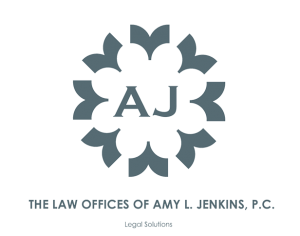
Important Planning Conversations to Have With Your Parents
If you’ve given any thought about estate planning, you probably associate it with preparing for death. But there are critical reasons for and significant benefits to planning while you’re still alive and well. Planning for your assets and your death is something that should start right now through honest, open conversations with your family.
It starts by talking with your parents, siblings, and children about what you want the future of your family to look like, how you’d like assets managed, and what type of care each family member would want in the event of a debilitating or terminal illness.
You may have already started a conversation about estate planning with your family. But this week, I dive deeper into the conversations you need to have to truly understand your family’s financial picture and plan for the future in the best way.
Conversation #1: What Exactly Do Your Parents Own?
The first conversation involves fundamental questions for the older members of your family: “What do we have? Where is it? And, how would I access it if you weren’t here to guide me?”
The potential risk to your family’s wealth is intricately tied to the costs incurred in the event of a passing or incapacity. Beyond the visible expenses of funerals, burial, or cremation, and end-of-life medical care, there are a myriad of unseen costs.
Unclaimed assets, amounting to approximately $70 billion in various departments across the U.S., often slip through the cracks because family members don’t know where the assets are, how to get them, or that they even exist.
Because of this, tracking and documenting assets, including crypto assets, before incapacity or death is essential to protecting your family’s wealth when someone dies or becomes incapacitated.
It may be difficult to bring up this topic with your parents or other family members, but how you approach it with them will make all the difference. The secrecy of asset locations or the fear of appearing greedy may hinder an open discussion between family members, but this can be overcome by building trust between relatives and entire generations.
For the junior generation, building trust involves understanding the root causes of distrust and stepping into a mature, caring perspective for the greater family good. Similarly, senior generations can nurture trust by taking ownership of past parenting shortcomings and demonstrating faith in the individuals their children have become.
Navigating these challenges may be daunting, but the rewards of building trust and initiating this crucial conversation are immeasurable. Use the conversation as an opportunity to record the locations and access permissions of family assets. If you aren’t sure how to do this, we can help you create a clear inventory of your assets so nothing is lost when death or illness strike.
Conversation #2: What Are Their Wishes for Long-Term Care?
The next conversation you need to have with your parents is about long-term care planning. This conversation extends beyond financial considerations and looks into the emotional intricacies of care, posing questions about who will provide care if your parents become incapacitated or disabled, how it will be administered, and the potential burdens on loved ones.
While money can be a less vulnerable entry point to this conversation, the core involves the tender question of personal care. Addressing concerns such as, “Who will take care of me? How will I be cared for? Will I be a burden on my loved ones?” brings a level of vulnerability that goes beyond financial considerations.
Neglecting this conversation can leave crucial decision-making up to the medical system, often resulting in undesirable outcomes and accumulating costs. By engaging in the long-term care conversation, clarity emerges on preferences, funding, and avenues for protection against unforeseen care costs.
Let Us Guide The Conversation
If initiating these conversations feels challenging or uncomfortable, we can help. We focus on building personal relationships with our clients and their families, and can help guide you and your family through difficult discussions and tough questions about your family’s assets and wishes.
It starts with a planning session, where we look at everything you own and everyone you love to identify gaps in your family’s security and make a plan that ensures everything will be cared for the way you want when you die or if you become incapacitated.
To learn more, schedule a complimentary 15-minute discovery call with us.
Contact us today to get started.
This article is a service of Amy L. Jenkins, a Personal Family Lawyer® Firm. We don’t just draft documents; we ensure you make informed and empowered decisions about life and death, for yourself and the people you love. That’s why we offer a Life & Legacy Planning™ Session, during which you will get more financially organized than you’ve ever been before and make all the best choices for the people you love.
The content is sourced from Personal Family Lawyer® for use by Personal Family Lawyer® firms, a source believed to be providing accurate information. This material was created for educational and informational purposes only and is not intended as ERISA, tax, legal, or investment advice. If you are seeking legal advice specific to your needs, such advice services must be obtained on your own separate from this educational material.



